‘People still approach me, almost daily, about this character’: David Wenham reveals his most popular role
He returns to the big screen to reprise one of his most famous and funny roles but after decades in the limelight, David Wenham is still doing things in his own, offbeat way.

He strolls into the sun-filled riverside restaurant and approaches a lone female diner with his hand outstretched and an easy smile. The woman gazes back in confusion. She must think her luck has changed – surprise lunch with David Wenham! Either that or she’s the target of an elaborate hoax. Realising his mistake he looks over to the other lone female diner and pulls up a seat with an apologetic grin and a simple introduction: “Hi, I’m David.”
We’re at the Brisbane Powerhouse, the vibrant cultural landmark that looms over the city’s river in the fashionable suburb of New Farm. Other diners clock his presence and return to their December festivities. This famous face is now a familiar sight in Brisbane; just another Sydneysider who upped sticks post-Covid and headed north.
Still, it’s a shock to see Wenham looking so thoroughly at home here because he is deeply rooted in Sydney’s inner-city Potts Points, where he lived for a quarter of a century. This eclectic area neighbouring the neon strip of Kings Cross is where he honed his art by listening and learning, by observing the cavalcade of local characters who informed some of Wenham’s best roles. It’s where he got to know the troubled and the homeless by name and where he volunteered at the Wayside Chapel, a sanctuary for the lost just a short walk from his home. He performed one of his first stage roles here in 1991, the deeply unsettling The Boys, which drew crowds snaking down Nimrod St night after night. His directorial debut on the short film Ellipsis was made in the heart of Sydney as a sort of love letter to the city.
And now – head-snap moment – here he is in Brisbane having a we love it up here moment for Team Maroon.
“I’m a flag-waver,’’ Wenham admits, sipping sparkling water and gazing out at the Brisbane River, which is doing its best to conjure up a bit of blue as it slides past the windows of Bar Alto. He’s dressed in Brisbane business attire of open-necked shirt and neat trousers, zhuzhed up with a chunky silver ring on his middle finger and a couple of bands on his wrist. That full head of ginger-flecked hair provides a youthful edge for a man staring down his 60th birthday.
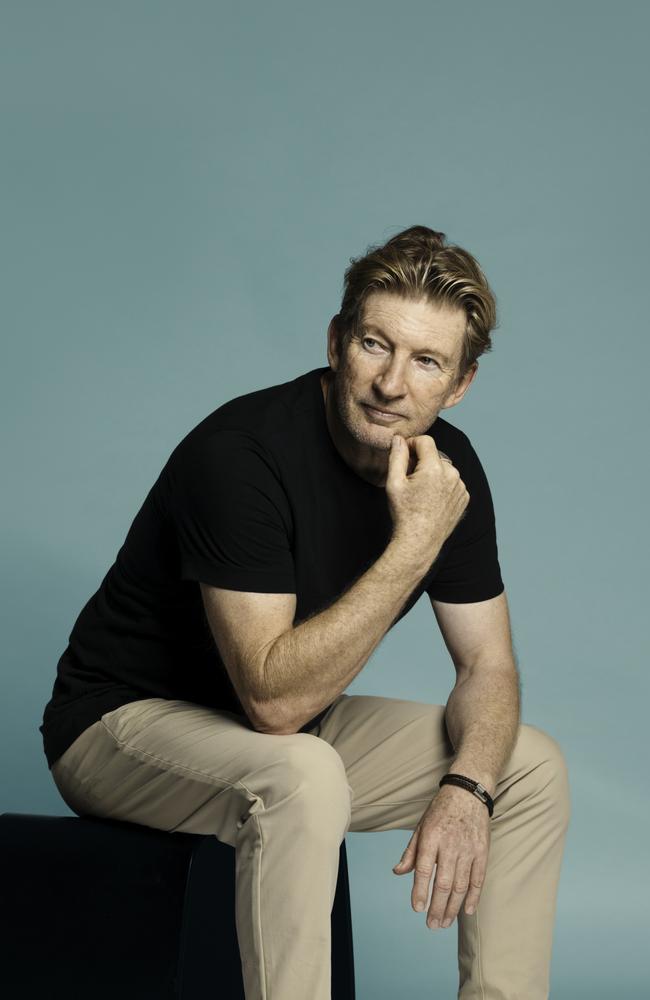
“Brisbane is a city at a very interesting point in time, and not just because the Olympics are here in a handful of years and there’s been massive migration since Covid,’’ Wenham observes. “Putting all that aside, I think it’s changing in really interesting ways.”
He looks at Brisbane through a creative arts lens and lists the big ticket items, from the heralded refurbishment of Queensland Ballet’s West End HQ to a new 1500-seat theatre under construction at South Bank. He namechecks the animation industry – “this is the epicentre” – and the music and film production facilities. “And then there’s visual arts, a very big interest of mine. The support for visual arts in this city is jaw dropping. And that’s just the arts – this area is going through an absolute explosion that people outside of here are not really aware of. People have no idea of the great depth of really fascinating individuals who are living here.’’
His eyes light up and it feels like he could go on – but he’s not here to promote the city. There’s so much else to cover across his long career, not least the hapless Johnny Francis Spitieri, a character that has clung to Wenham like a tight polyester suit on a humid Brisbane day.
His dull-eyed, mullet-wearing, thong-slapping Spit, from the 2003 crime comedy Gettin’ Square, has grown into an unlikely cult hero. What does it say about the Australian psyche that this ex-con junkie is so well loved by film fans?
“That,’’ Wenham smiles, “is a fascinating question. More than any other role, it’s become the character that people still come up to me about, almost on a daily basis. The level of fandom is quite incredible; some people who approach me say they’ve seen it dozens of times.’’
A few years back Li Cunxin, the Queensland Ballet’s then artistic director, approached Wenham with a fundraising idea: would the actor agree to be auctioned off for lunch with the highest bidder? (Wenham has deep ties to ballet – his partner Kate Agnew is a former ballerina and the eldest of two daughters, Eliza, is now with the Queensland Ballet.)
“And so it was sold for however much money, and the successful bidders said instead of going to a restaurant they’d like to do lunch at their house in Sydney. It started at about 12 o’clock, and I left about two o’clock the following morning,’’ Wenham laughs. Turns out the family had seen Gettin’ Square about 30 times. “They were obsessed with that movie, and so the opportunity for them to sit down and have a discussion with me about that film was too good to pass up.’’
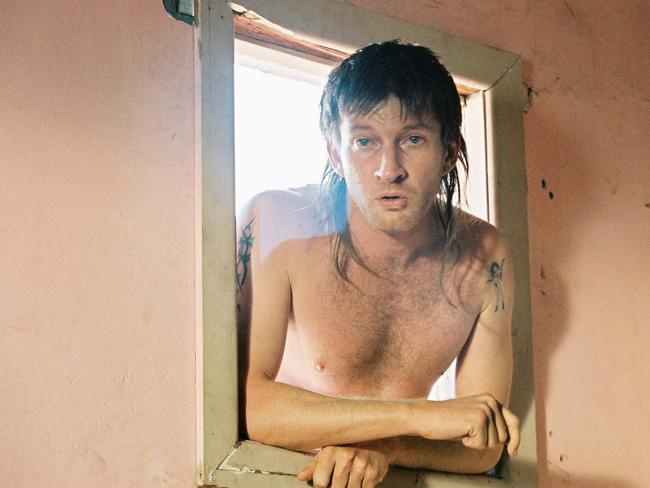
Felicity McVay remembers that lunch well, because it was at her home and it was her father-in-law Dan who made the winning bid. “The reason he bid is that everyone in my husband’s family just loves Gettin’ Square, and they love the character of Johnny Spitieri,’’ she says, rolling off the film’s one-liners that have made it into family lore. “Just like some families sit down at Christmas and watch Home Alone or Love Actually, every summer we would sit down as a family and watch Gettin’ Square.”
Written by Gold Coast criminal lawyer and novelist Chris Nyst and directed by Jonathan Teplitzky, Gettin’ Square had a fine cast (Sam Worthington, Wenham, Timothy Spall, Gary Sweet, Freya Stafford) but it didn’t much bother the box office. It garnered solid reviews but there was unanimous praise for Wenham, who nailed his down-and-out Spit with such aplomb that a homeless man in Kings Cross, known as “Two Four Eight: the Irate Deviate”, was moved to accuse him of identity theft.
Wenham says the initial release was marred by poor distribution and promotion, but the film subsequently found a loyal audience on VHS and then DVD. “It’s built this audience through very old technology,’’ he says. “I lived opposite a Video Ezy store in Potts Point and the lady who ran it used to tell me it was the most stolen VHS and DVD in the stores. It was just up the road from Kings Cross and a lot of characters from there were very big fans.”
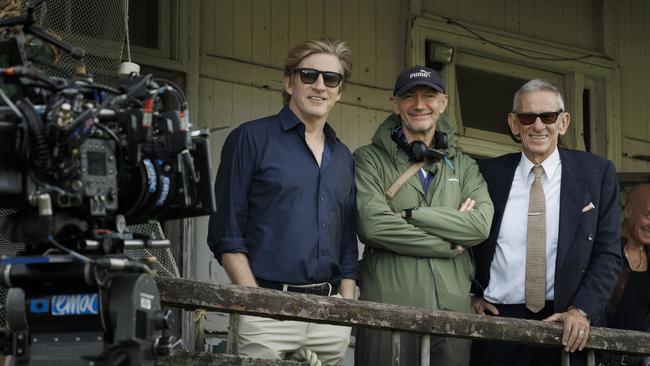
The David-and-Goliath courtroom scene where the hapless Spit wrongfoots the wigs is to this day hailed a comic masterpiece: fans are still brought to their knees with his plea to the bench: “Excuse me, Your Hona, do you know who’s paying for me bus fare today?” Nyst, who has spent years defending Gold Coast crooks, says the courtroom scene was based on actual events he’d witnessed with a heroin addict who sent a courtroom into chaos. “I wasn’t sure whether he was the smartest witness I’d ever seen, or the dumbest – but he got what he wanted, which was that he never really got pinned down to answering any questions,” Nyst says.
Wenham had the benefit of Nyst’s insights to draw upon, but he also had his own mental picture book because actors are professional observers and he’d seen enough on the streets of Sydney to know how Spit would move, dress, think and speak. “I’d lived in and around Kings Cross for a long time, for nearly three decades, so that world was not foreign to me. The very first time I read Gettin’ Square I could feel the rhythm of the character, instantly. I could see the character and hear him.”
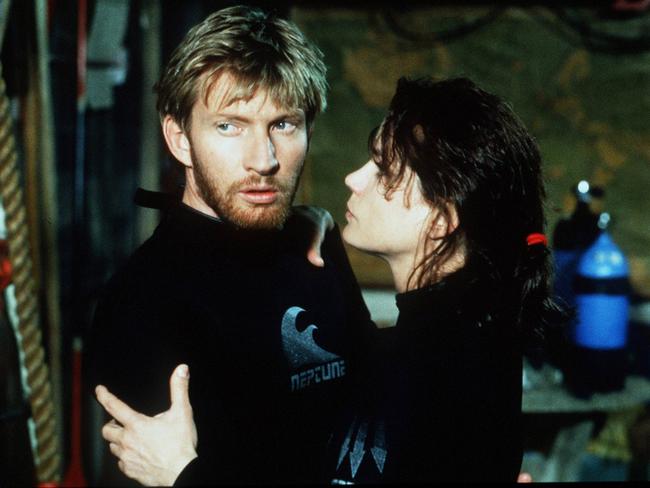
Nyst says Wenham’s affinity with the role was a gift as well as a surprise – when Teplitzky first mentioned Wenham’s name the lawyer had only really known him as heart-throb Diver Dan in SeaChange. “I didn’t say it to Jonathan at the time but in the back of my brain I’m thinking, ‘Well, that’s not Johnny material’.
“But when David showed up to have a read through with the other actors, the moment he opened his mouth and started talking he was totally in character, and he was Johnny Spit, right there. He was all the sort of identities that I’d been thinking of that became the conglomerate that was Johnny Spit. He just embodied the character.’’
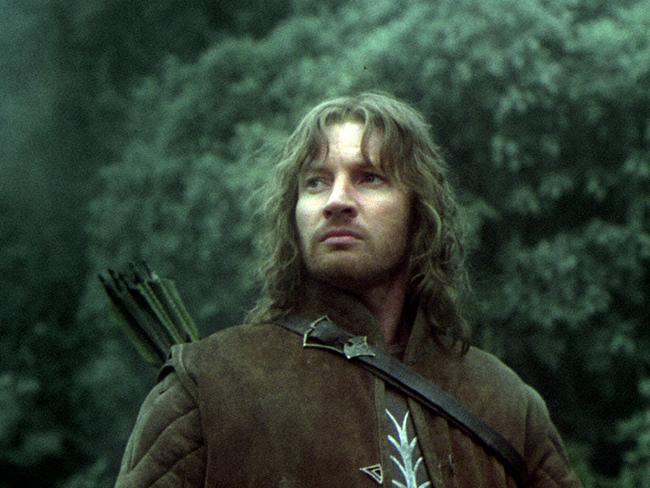

Wenham has appeared in plenty of big budget blockbusters: Lord of the Rings (in which he played Faramir); Lion; 300; Pirates of the Caribbean: Dead Men Tell No Tales; Van Helsing; and Baz Luhrmann’s Elvis, alongside a string of television dramas – about 150 roles all up. He knew there was longevity in his Spit character because he was constantly reminded by fans, but he had no desire to play the role again. “I’m a big believer in leaving the audience wanting more of the character,’’ he says.
“And then, I don’t know how many years ago I was talking to a very good friend of mine who’s in the business, and he mentioned the character and we just started to freeform about all the different scenarios you could put him in. It got me thinking that there might be something to it.”
He rang Chris Nyst and, quelle surprise, the lawyer had the skeleton of a script he’d been discussing with Teplitzky. “I wasn’t going to come back unless there was something substantial, a script that I really did believe in,’’ Wenham says. “And when I read it the first time it was like, ‘Yeah, actually, I think there’s something in this’.”
Now Spit is back, older and drug-free, in an eponymous spin-off that sees him returning to Australia on a false passport, only to be locked up in an immigration detention centre. The scene was filmed in the controversial $220 million barely-used Covid quarantine facility built in Toowoomba by the Palaszczuk government. There must be a sense of relief that it’s being used for something. What’s it like there?
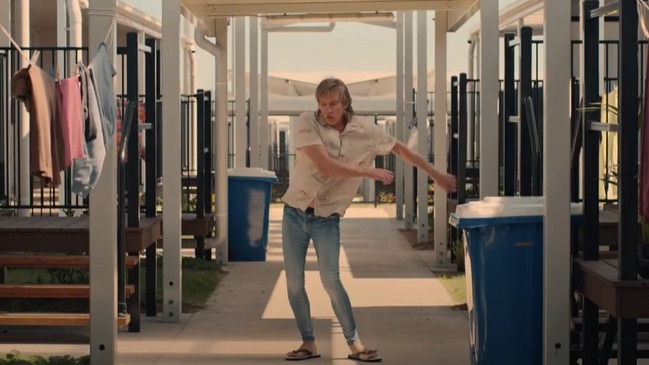
“We stayed there as well and it was absolutely fine… I think it should be turned into social housing, but I’m not going to get into that,’’ Wenham says, abruptly stopping himself from wading into a hot political debate. Looking back over his long career it’s hard to find him putting a foot wrong – except, perhaps, the time he admitted being such a handful at Christian Brothers’ High School in Sydney that he pushed a teacher into a nervous breakdown and leaving the brotherhood.
He’s friendly but reserved in this interview, trying to picture how his words might make an awkward headline when I ask him when he last went to the cinema for enjoyment rather than work. There’s a long pause. “The cinema, the cinema,’’ he says, his mind working overtime. “Ummm, pass.’’ He smiles and shoots me a look. “It’s dreadful isn’t it? Filmmaker-actor David Wenham doesn’t go to the cinema. We shouldn’t publicise this.’’
He doesn’t watch movies at home either. “The only reason is that I find it nearly impossible to switch off my critical faculties, so I can’t enjoy it, I just can’t switch off,’’ he reveals. “When I fly, and I fly a lot, I only watch documentaries. I love them because they are completely surprising and I admire documentary filmmakers. And I read, mostly fiction ... but my other interest is visual arts. So I don’t see movies, but I do see things in galleries.”
And then he recalls he was in the cinema a week or so ago to watch Spit ahead of its March release. Now he’s back on comfortable ground talking about a character he has a deep fondness for. He notes how easily he fell back into the role when he squeezed into the ill-fitting skinny jeans, slapped on a pair of thongs for the first time in 20 years, and donned the mullet wig that took 80-odd hours to hand-knot. “As soon as I put the thongs on I instantly went back into the posture and the pace and the rhythm of that character. It had lain dormant in me all that time,’’ he says.
The initial setting in immigration detention opens the way for an exploration of mateship and the refugee experience, but the film sticks close to its comedic heart. “It’s not a didactic film or preachy or anything, it’s a film about this flawed individual who is a good person,” Wenham says.
What is it about Spit that has garnered such an enduring following? “I’m not sure. Australians love flawed individuals and he’s funny, he’s endearing and he’s loyal. But I’m probably not the best person to answer that question.”
Nyst likens Spit to the little Aussie battler, a Norman Gunston type with an extra dose of rat cunning. “He’s not an intellectual heavyweight, he’s just a little bloke doing his best against the odds,’’ Nyst says, bringing to mind the convict mentality of struggling, surviving and overcoming. “I think that’s sort of become ingrained in our national identity and perhaps that’s why people identify with the Spitieri character.’’
Teplitzky has thought about it as well. Spit is anti-authority and magnanimous, he says. “He doesn’t judge anyone unless they cross him and he’s a survivor. In a way, he embodies everything Australians like to think they are.’’
For such a real-life nice guy – and that’s how everyone we talk to describes him – David Wenham plays evil with the impact of a spider crawling up the back of your neck. His Brett Sprague in The Boys, the film that grew out of the play he performed all those years ago near the Cross, is surely one of Australia’s most unsettling film characters. Toni Collette, playing Sprague’s girlfriend, had to walk off the set at times to escape the cruelty and danger in Wenham’s eyes. He was too convincing for comfort.
Influenced by the brutal murder of Sydney nurse Anita Cobby, the film – seen as a forerunner to Snowtown and Animal Kingdom – was lucky to be made at all after the NSW Film and Television Office ruled that the filmmakers were “morally reprehensible for trying to put scum like this on the screen’’. Wenham describes it as the closest thing to method acting: he’d psyched himself to the point that he believed he was that character for a period of time.
A waiter at our Brisbane restaurant reveals he’s been watching Wenham in the new television series Fake, in whichhe plays a romantic conman. “He does bad guys so well,’’ the waiter says. Certainly there’s nothing in Wenham’s own background to inform such evil. He has often spoken of his idyllic childhood, the youngest of seven children growing up in a three-bedroom home in Sydney’s Marrickville where summers were spent thinking and dreaming in a makeshift treehouse built in a frangipani that filled the backyard. His staunch Catholic parents, Bill and Kath, got their happiness from giving rather than receiving.
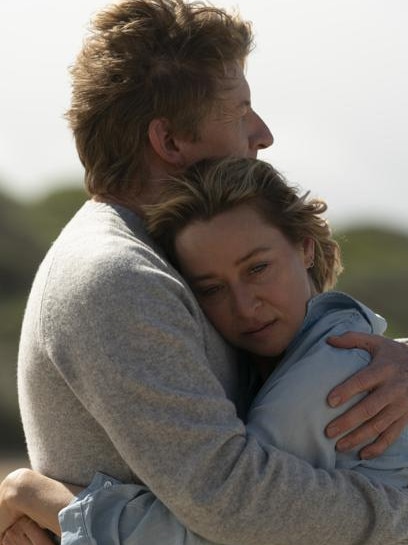
As it transpires, family is a big reason for the shift to Brisbane. His parents are both gone and all his siblings bar one have moved beyond Sydney. “Essentially I’m here, not permanently, but I spend time here because my other half’s family is here,’’ he says.
Wenham travels a lot, picking and choosing projects that interest him because he puts creative fulfilment over raw fame and has always eschewed the A-list lifestyle. He’s never courted controversy, and doesn’t curate a version of his life for social media (“I like living in the present, as opposed to living in a device. I don’t understand this obsessive desire for likes”). He lends his fame to issues he cares about – homelessness via the Wayside Chapel, and wildlife conservation – and he’s known for his behind-the-scenes support for Australian filmmaking.
In 2010, journalist and best-selling author Trent Dalton sent off a short film script, Glenn Owen Dodds, developed with his director mate Frazer Bailey, to Wenham – “our favourite Australian actor of all time,” Dalton says. They didn’t really expect a response, let alone a “yes”.
Their excitement when Wenham agreed to play the lead role soon evaporated when they considered the budget-busting expense of flying him to Brisbane, putting him up and paying whatever an A-lister earns for two long days of work. “Then David calls up, ‘Don’t worry fellas, I’ll get myself up there, put me in the cheapest motel you can find and put any acting fees you were going to pay me towards post-production’,’’ Dalton recalls.
He says Wenham gave the comedic performance of a lifetime. “That film won a bunch of international awards all because of him and opened the door of Los Angeles to Frazer and I. There are hundreds of Australian creatives who could tell you a similar story about David Wenham,’’ he says.
When I tell Wenham this story he immediately recalls the film, surely one of his smaller roles. He didn’t do it for charity, he insists. “I didn’t do it as a favour. I genuinely loved the script, I wouldn’t have done it if I didn’t. It tickled me and made me smile and the character that I played, Glenn Owen Dodds, GOD, was a fabulous opportunity.’’
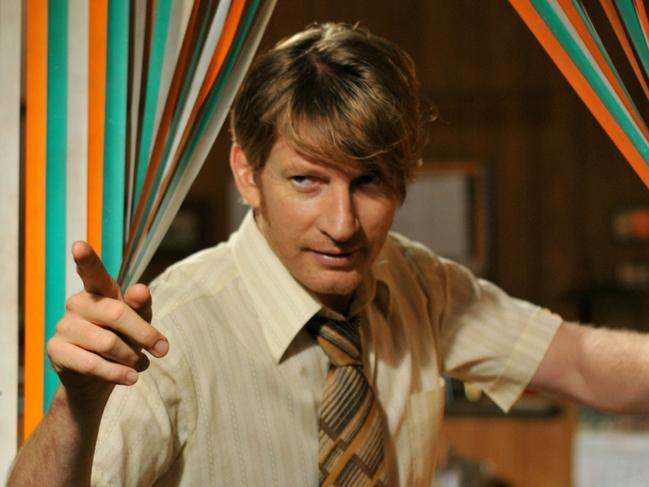
Another creative with a story about Wenham is Felicity McVay, who hosted Wenham at that marathon auction lunch won by her father-in-law. A friendship developed between the families and Wenham brought her on to the Spit production team, first doing social media and raising finance, then as a producer. As the former global head of entertainment at TikTok, McVay bought her own skills to the task but says that chance meeting with Wenham has sent her career on an exciting new trajectory. And she’s still just a little star-struck.
“When we’re busy, I’ll talk to David half a dozen times a day, but there’s still a little flutter of butterflies when his name flashes up on the screen,’’ she laughs. “Certainly my mum feels that way, because so many older women recall him as Diver Dan.”
Wenham’s extraordinary CV veers from Hollywood blockbusters to a music video for singer-songwriter Alex Lloyd to his own ABC-TV show, The ABC Of, where he interviewed former prime ministers Julia Gillard and John Howard and other prominent Australians including Ita Buttrose, Garry McDonald and Jack Thompson.
He boldly waded into an episode with feminist and author Germaine Greer, who made a rare studio appearance from her aged care home in Castlemaine, Victoria. Wenham was respectful and genuinely interested; Greer was forthright and reflective, ever the unfiltered intellectual. He took her through key points in her life and opened the door to the controversy around her statements on transgender issues, and didn’t blanch when she repeated her strongly held views: “The whole notion that you’re in the wrong body is to my mind profoundly mistaken…”
I thought it was the best interview of the two seasons, I tell him.
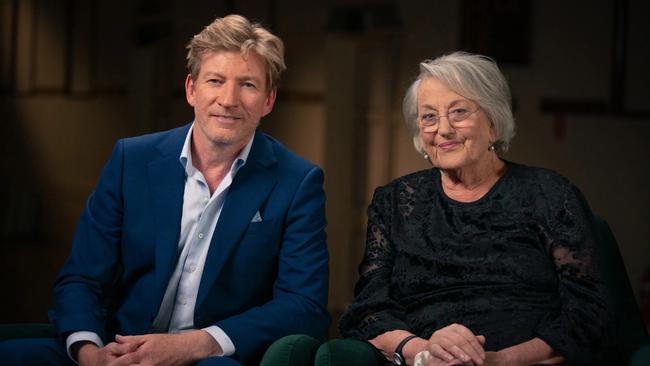
“She blew my mind,’’ Wenham says. “I don’t know how long we spoke on camera, maybe two hours. And then we sat there afterwards with a bottle of wine and we kept nattering. I found her completely fascinating, and I just thought, ‘You’ve been done a disservice over the past however many years, because it’s been too easy for people to take sound bites of what you’ve said without really listening to what you’re saying in context.’ Because then, even if they didn’t agree with her, they’d actually understand what she was saying.”
There’s still one person he’d love to interview, though he’s not Australian. “If somebody asked me, ‘Who’s the most extraordinary person you’ve ever met?’, hands down it would be David Attenborough.” What is it about Attenborough? “His generosity, his knowledge, his willingness to share,’’ he says, before breaking off, wondering if he should share this story; then he relents. Unbeknown to him, his daughter once wrote to Attenborough for a school project involving an eminent person. “I went to the mailbox one day and saw this handwritten letter from London, and it was to her. It was a two-page handwritten letter to a child. He answered every one of her questions. Extraordinary,” Wenham says.
He had a chance to ask Attenborough about this act of generosity at a dinner in London some years later. “He said he’s done it for years, spends an hour every day of his life replying to letters. It had a profound effect on me.’’
Wenham went home and rifled through the boxes containing a career’s worth of fan letters from around the world. “What I did then, and I still do every now and again, I open up those boxes, I pull out some of the fan letters, some of them sent 20 or 30 years ago, and I get a photograph out, sign it and send it off. Nine out of 10 will never reach the person who originally sent it, but you know, maybe one will.’’

There would be a few grandmothers out there who would still swoon at a long-delayed reply from Diver Dan, and Tolkien fans who wouldn’t mind hearing from Faramir. A reply from Brett Sprague from The Boys might send some into hiding under the bed, but a letter from John Francis Spitieri would tickle Gettin’ Square fans and that’s what Wenham loves about this latest role.
“One of the motivating things for me in doing Spit is that he’s entertaining and he’s funny and, oh my God, don’t we need a good laugh?” I’m sure he knows it sounds corny and grandiose but he says it anyway because he believes it and he’s still basking in the memory of Attenborough. “I just wanted to make a film that was positive. I want people to come out of the cinema feeling good about themselves and good about being part of the human race. It’s a celebration, a celebration of all the best things about being human.”
Spit is in cinemas from March 6. David Wenham will embark on a national Q&A screening tour from Sunday Feb 9. For dates: https://movies.transmissionfilms.com.au/spit/q&a


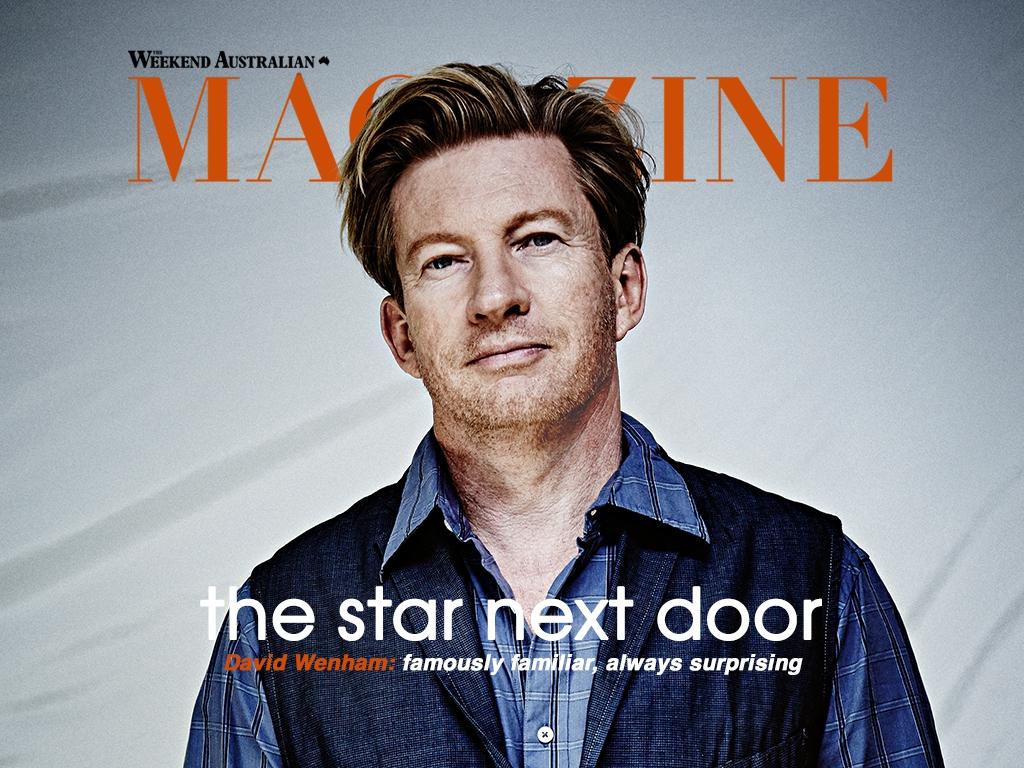

To join the conversation, please log in. Don't have an account? Register
Join the conversation, you are commenting as Logout